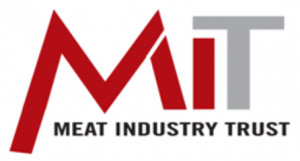MIT: Meat Industry Trust

MISSION
“To provide attractive and quality products through continuous research and development, in particular red meat products, that will meet the quality, health and lifestyle needs of our consumers.”
SCOPE OF THE TRUST
The MIT is a discretionary Trust and is entitled to fund various objectives of interest to the Red Meat Industry, such as the granting of bursaries for the purpose of furthering education relating to the Red Meat Industry and the benefitting of the Red Meat Industry in general and also the the promotion of livestock welfare.
BACKGROUND TO THE TRUST
Since 1998, between R1 million and R2 million was allocated annually to R & D projects.
From the 1930’s the organised Red Meat Industry in South Africa contributed financially to Research and Development (R & D).
Contributions to Research and Development (R&D) were made by the Meat Board throughout its existence during the decades prior to the 90’s. Various individual organisations like Cattle Breeders’ Associations, SAMIC (South African Meat Industry Company) and others contributed to red meat research at that time.
The Meat Industry Trust (MIT) was established in 1996, through the initiative of the Meat Board’s members. This was in preparation for the envisaged closing of the Meat Board in accordance with the amendment of the Marketing of Agricultural Products Act no 47 of 1996. The Meat Board donated R15 million and some assets to the Trust.
The MIT is a perpetual discretionary Trust and accordingly is entitled to fund various objectives of interest to the red meat industry, such as the granting of bursaries for the purpose of furthering education relating to the red meat industry and to the benefit of the red meat industry in general, and also includes the promotion of livestock welfare.
The interest on the capital plus interest accrued over time is used annually, to support research projects of merit and other projects as approved by the Trust. Download the document containing the MIT Trust’s Funding Principles
The MIT is overseen by a Board of Trustees, 3 members are nominated by the Minister of Agriculture and three are red meat industry nominated.
USE OF MIT TRUST FUNDS
Restrictions in the use of funding are evident from the DEED OF TRUST:
- the Trustees can only fund matters within the objectives of the trust;
- allocation of funds need to benefit the red meat industry in general;
- allocation has to be limited within the context of perpetuity, i.e. funds cannot be depleted in such a manner that the continued viability of the Trust is at risk.
OBJECTIVES OF THE TRUST
- Fund research related to the improvement, production, manufacturing, processing, storing or marketing of red meat or related to red meat producers;
- Fund research relating to and promoting animal welfare;
- Fund research projects directly e.g. the Predator control project and a Project on Climate Change and its effects on livestock farming;
- Provide, distribute and disseminate information relating to any matter which may be relevant to the red meat industry;
- Render assistance by means of a grant, loan or by any other means to any person(s) that promote any branch of the agricultural industry which relates to meat or red meat products or which has similar objectives as the trust;
- Provide financial support to post-graduate students in fields of importance to the red meat industry;
- Provide funds for training or support or assistance to emerging farmers in order to improve capacity and/or to initiate and manage agricultural operations;
- The trustees may, periodically decide, within the ambit of the provisions of the clause, to provide funds to benefit the red meat industry by whatever lawful means, using their discretion.
The RMRDT does not perform research but outsources the task to recognised Research Institutions. Institutes like the ARC (Agricultural Research Council), Universities and Provincial Departments of Agriculture.
THE ROLE OF THE TRUSTEES
- Manage the financial affairs, including proper investment of funds;
- Approve the project budget as presented by the planning committees;
- Make funds available for the research projects to be conducted by the research institutions;
- Establishment and functioning of livestock improvement schemes, like the central performance testing stations for beef cattle and pigs;
- Improving research facilities at universities and the Meat Industry Centre at Irene;
- Execute numerous research projects, many leading to postgraduate qualifications of research personnel.
Tel: (012) 348 7572
Email: admin@levyadmin.co.za
Website: www.meatindustrytrust.co.za
